Introduction:
GitHub is a popular platform for hosting and collaborating on software projects. One of the essential features of GitHub is its authentication and access control mechanism, which includes the use of tokens. Traditionally, GitHub has offered personal access tokens, known as “Tokens (Classic),” for authenticating and authorizing API requests. Recently, GitHub introduced a new feature called “Fine-Grained Tokens (Beta),” providing more granular control over token permissions. In this blog, we will explore the differences between Fine-Grained Tokens (Beta) and Tokens (Classic) and understand their implications for secure and efficient development workflows on GitHub.
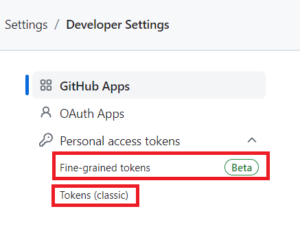
Tokens (Classic):
Tokens (Classic) have been the primary method for authentication and authorization in GitHub. They are personal access tokens that users generate to access their GitHub accounts or interact with the GitHub API. Here are some key points about Tokens (Classic):
- Global Permissions: Tokens (Classic) have a set of permissions that apply globally to the entire GitHub account. Once generated, they can be used for various purposes across different repositories.
- Scopes: Tokens (Classic) can be configured with specific scopes to define the access rights for different actions, such as read access to repositories, write access to repositories, or administrative privileges.
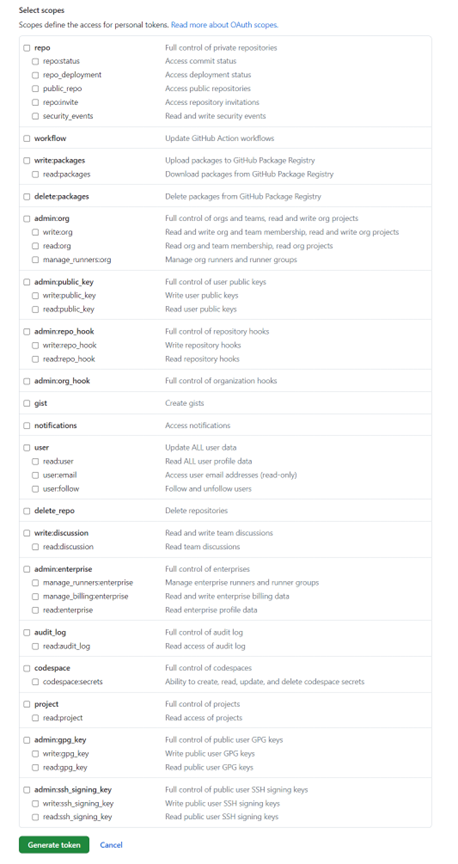
- Limited Granularity: Tokens (Classic) offer limited approach when it comes to controlling permissions for individual repositories or specific actions within repositories.
Fine-Grained Tokens (Beta):
Fine-Grained Tokens (Beta) introduce a more flexible and granular approach to managing access control in GitHub. Here are the key features and benefits of Fine-Grained Tokens (Beta):
- Repository-Level Permissions: Fine-Grained Tokens (Beta) allow you to define permissions at the repository level. This means you can grant different levels of access to specific repositories, providing a more fine-grained control mechanism.
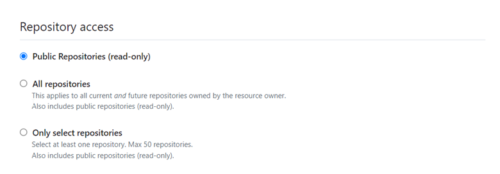
- Actions and Environments: With Fine-Grained Tokens (Beta), you can specify permissions for specific actions or environments within a repository. For example, you can grant read-only access to a repository but restrict write access to certain branches or limit access to specific workflows or actions.
- Enhanced Security: Fine-Grained Tokens (Beta) offer enhanced security by limiting the scope of a token to only the necessary actions or environments. This reduces the risk of accidental misuse or unauthorized access.
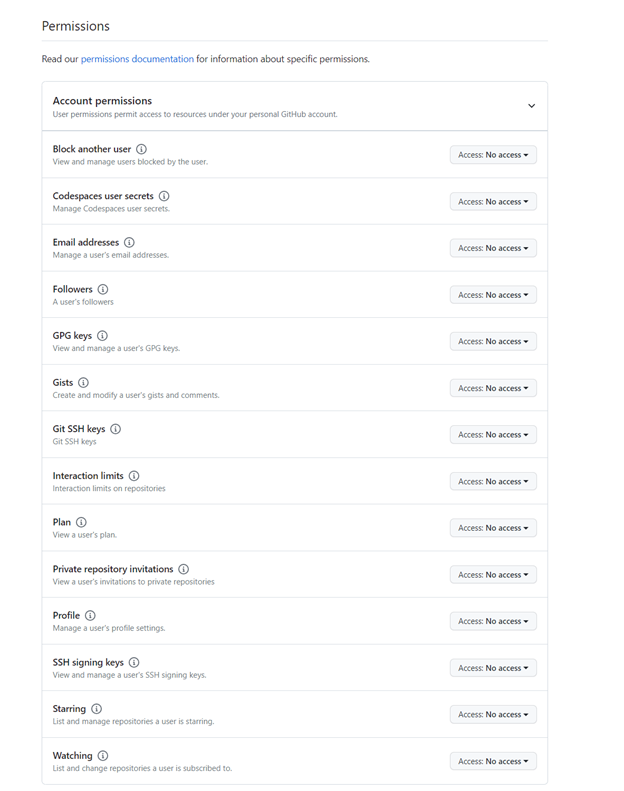
- Better Compliance and Auditability: Fine-Grained Tokens (Beta) provide improved compliance capabilities by allowing organizations to define and enforce more specific access control policies. This helps ensure that the right level of access is granted to the right individuals or services, enhancing accountability and auditability.
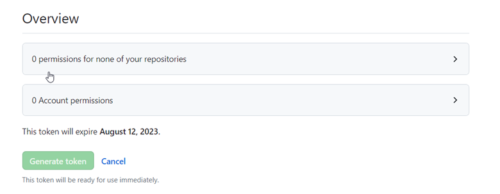
Considerations for Adoption:
While Fine-Grained Tokens (Beta) offer enhanced control and security, there are a few considerations to keep in mind:
- Beta Status: Fine-Grained Tokens are currently in beta, which means they may still undergo changes and improvements. It’s important to stay updated with GitHub’s announcements and documentation to ensure you have the latest information.
- Migration and Compatibility: If you decide to adopt Fine-Grained Tokens, it’s crucial to assess the impact on your existing workflows, applications, and integrations. Ensure that your tools and scripts are compatible with the new token format and permissions model.
- Permissions Management: With Fine-Grained Tokens (Beta), managing permissions at a more granular level requires additional attention and careful planning. It’s essential to establish clear access control policies and regularly review and revise token permissions to maintain a secure and efficient development environment.
Conclusion:
Fine-Grained Tokens (Beta) in GitHub bring a new level of granularity and control to access management, providing enhanced security and compliance capabilities. While Tokens (Classic) have served as a reliable method for authentication and authorization, Fine-Grained Tokens (Beta) offer the ability to define permissions at the repository level, specify actions and environments, and improve overall access control. As GitHub continues to evolve, understanding the differences between these two token mechanisms will empower developers and organizations to make informed decisions when it comes to securing their GitHub workflows and repositories.

